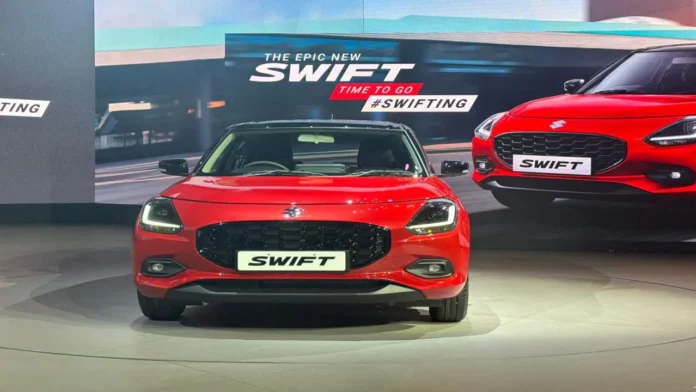Suzuki Swift Production Halted: Global Automobile Industry
In a major setback to the global automobile industry, Suzuki Motor Corporation has temporarily suspended production of its popular Swift hatchback due to a growing shortage of rare earth elements—materials heavily controlled by China. This unprecedented move marks the first time a Japanese automaker has halted production directly because of rare earth export restrictions, according to industry sources.
Subscribe to IBN24 NEWS NETWORK’s Facebook channel today for real-time updates!
Channel Link: https://www.facebook.com/ibn24newsnetwork
Swift Production Suspended Due to Critical Component Shortage

Suzuki stopped production of all variants of the Swift subcompact car, except the Swift Sport, starting May 26. The automaker initially expected to resume manufacturing by June 6, but supply issues persisted. The company has now announced that production may partially resume from June 13, with full operations expected only after June 16.
While Suzuki officially attributed the halt to a “component shortage,” two sources told Reuters that the true cause lies in China’s recent decision to tighten control over rare earth exports—materials that are essential to electric motors, batteries, and other critical automotive systems.
China’s Rare Earth Dominance Disrupts Global Supply Chains
Rare earth elements like neodymium and dysprosium are critical in the production of high-performance magnets, widely used in electric vehicles, hybrid systems, infotainment units, and more. China, which accounts for over 70% of global rare earth output, announced in April it would restrict the export of certain categories of these materials and related magnetic components.
The move triggered a domino effect, disrupting production across sectors from automotive and electronics to defense and aerospace. Several European manufacturing plants have already paused operations. In response, global carmakers like Mercedes-Benz are now strategizing ways to reduce reliance on Chinese rare earths.
Ripple Effect on EV Industry and Emerging Markets
The rare earth shortage is also casting a shadow over the electric vehicle (EV) sector. Lithium-ion batteries, integral to EVs, rely heavily on rare earths, and supply disruptions could delay EV production timelines globally.
For India, the implications are significant. The Swift is one of the country’s best-selling compact cars, and production gaps could lead to extended waiting periods or price volatility in the coming months. With India’s EV market still in a nascent stage, a prolonged disruption could also hinder the country’s transition to cleaner mobility.
India and Japan Explore Supply Chain Alternatives
As Suzuki struggles with component shortages, manufacturers in India are already exploring alternative battery chemistries and components that are less dependent on rare earths. Industry analysts believe this shift could accelerate the development of indigenous EV technologies and materials in the long term.
Meanwhile, Japan is taking diplomatic steps to reduce its vulnerability. The Japanese government is reportedly in talks with the United States to strengthen bilateral cooperation in creating a secure and diversified rare earth supply chain. According to Nikkei Business Daily, these proposals are likely to be central in upcoming trade negotiations.
A Wake-Up Call for the Auto Sector

Suzuki’s suspension of Swift production is a clear indicator of how geopolitical tensions can affect industrial ecosystems. It may only be a temporary pause, but the incident reflects the automotive industry’s growing dependence on strategic materials—and the vulnerabilities that come with it.
China’s ability to leverage its control over rare earths is becoming a powerful geopolitical tool. With no immediate alternatives, industries in countries like Japan, India, and across Europe must now accelerate investments in recycling technologies, alternate materials, and supplier diversification.
What Lies Ahead?
Although Suzuki has set tentative dates for restarting Swift production, industry watchers remain cautious. A prolonged disruption could result in supply backlogs, price hikes, and a wider reevaluation of sourcing strategies across the auto sector.
For Indian consumers, the immediate impact may be limited to longer delivery times for the Swift, but broader concerns loom about EV affordability, access to components, and the stability of India’s supply chains.
As the situation evolves, automakers worldwide will be watching closely—and planning how to future-proof their operations in a world where materials are as strategic as markets.
For instant news updates, subscribe to the IBN24 NEWS NETWORK YouTube channel
Channel link: https://youtube.com/@IBN24NewsNetwork?si=ofbILODmUt20-zC3
Read Also This article : Range Rover Masara Edition Arrives in India: With Sapphire-Inspired Luxury
